Gender

Gender plays a significant role in migration patterns and experiences, influencing who migrates, why they migrate, and how they are received and treated at different stages of the migration process. Women and girls, in particular, are vulnerable to specific challenges both in their country of origin and in their migration journeys—such as sexual exploitation, trafficking, limited access to healthcare, cultural discrimination, and limited employment opportunities.
Persecution and discrimination based on sexual orientation or gender identity may also lead to forced migration—including harassment and violence from authorities, smugglers, or other migrants. These forms of discrimination and marginalization greatly limit access to essential services, such as gender-affirming care, housing, education, employment, and access to legal protection.
MIRR Alliance underscores the need for more inclusive and equitable policies and practices that recognize and address the unique challenges that emerge from the intersection of gender and migration.



